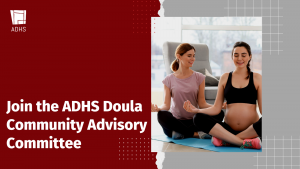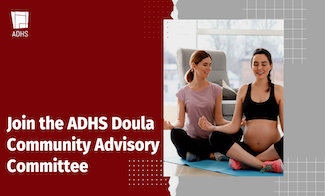 Expectant mothers certainly need the help of skilled health care professionals before, during and after the birth of their child. But sometimes mothers and their families can benefit from more than medical expertise.
Expectant mothers certainly need the help of skilled health care professionals before, during and after the birth of their child. But sometimes mothers and their families can benefit from more than medical expertise.
That’s where doulas help. A doula is a trained companion – not a health care professional – who supports another person through a significant health-related experience, such as pregnancy, childbirth, miscarriage, or stillbirth. The doula complements health care professionals who provide the mother’s medical care by making her feel safe and comfortable.
ADHS is looking for certified doulas from across the state, including rural areas, to serve on the Doula Community Advisory Committee. The committee is being established to identify organizations that certify doulas based on qualification requirements and discover culturally relevant classes to train doulas. Applications are available on the ADHS website and will be accepted through Wednesday, April 20.
The contributions of doulas during reproductive experiences and end-of-life care have shown beneficial. Continuous support during labor provided by doulas has been associated with improved outcomes for both birthing women and babies, including shorter delivery, fewer C-sections and complications, the use of fewer medications and fetal extraction tools, less time in neonatal intensive care units, positive psychological benefits, more satisfying birth experiences, and increased breastfeeding.
A doula may also assist with other medical procedures and may provide support to the mother’s partner, family, and friends. Unlike a physician, midwife, or nurse, a doula cannot administer medication or other medical treatment or give medical advice.
If you are a doula, I hope you will consider joining this new and important committee.










